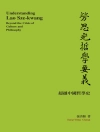Environmental Philosophy in Asian Traditions of Thought provides a welcome sequel to the foundational volume in Asian environmental ethics
Nature in Asian Traditions of Thought. That volume, edited by J. Baird Callicott and Roger T. Ames and published in 1989, inaugurated comparative environmental ethics, adding Asian thought on the natural world to the developing field of environmental philosophy. This new book, edited by Callicott and James Mc Rae, includes some of the best articles in environmental philosophy from the perspective of Asian thought written more recently, some of which appear in print for the first time.
Leading scholars draw from the Indian, Chinese, and Japanese traditions of thought to provide a normative ethical framework that can address the environmental challenges being faced in the twenty-first century. Hindu, Buddhist, Confucian, and Daoist approaches are considered along with those of Zen, Japanese Confucianism, and the contemporary philosophy of the Kyoto School. An investigation of environmental philosophy in these Asian traditions not only challenges Western assumptions, but also provides an understanding of Asian philosophy, religion, and culture that informs contemporary environmental law and policy.
สารบัญ
Preface
Acknowledgments
Introduction
Section I: Environmental Philosophy in Indian Traditions of Thought
1. Environment and Environmental Philosophy in India
George Alfred James
2.
Ātman, Identity, and Emanation: Arguments for a Hindu Environmental Ethic
Christopher Framarin
3. Gandhi’s Contributions to Environmental Thought and Action
Bart Gruzalski
4. Acting with Compassion: Buddhism, Feminism, and the Environmental Crisis
Stephanie Kaza
5. Against Holism: Rethinking Buddhist Environmental Ethics
Simon P. James
6. Causation and ‘Telos’: The Problem of Buddhist Environmental Ethics
Ian Harris
Section II: Environmental Philosophy in Chinese Traditions of Thought
7. The Relevance of Chinese Neo-Confucianism for the Reverence of Nature
Mary Evelyn Tucker
8. Beyond Naturalism: A Reconstruction of Daoist Environmental Ethics
R. P. Peerenboom
9. Conceptual Foundations for Environmental Ethics: A Daoist Perspective
Karyn L. Lai
10. Process Ecology and the ‘Ideal’ Dao
Alan Fox
11. The Viability (
Dao) and Virtuosity (
De) of Daoist Ecology: Reversion (
Fu) as Renewal
Sandra A. Wawrytko
12. Ecology, Aesthetics, and Daoist Body Cultivation
James Miller
Section III: Environmental Philosophy in Japanese Traditions of Thought
13. The Japanese Concept of Nature in Relation to Environmental Ethics and Conservation Aesthetics of Aldo Leopold
Steve Odin
14. Dōgen, Deep Ecology, and the Ecological Self
Deane Curtin
15. Conservation Ethics and the Japanese Intellectual Tradition
David Edward Shaner and R. Shannon Duval
16. From Symbiosis (
Kyōsei) to the Ontology of ‘Arising Both from Oneself and from Another’ (
Gūshō)
Hiroshi Abe
17. The Confucian Environmental Ethics of Ogyū Sorai: A Three-Level, Eco-humanistic Interpretation
Tomosaburō Yamauchi
18. Triple-Negation: Watsuji Tetsurō on the Sustainability of Ecosystems, Economies, and International Peace
James Mc Rae
Afterword: Recontextualizing the Self in Comparative Environmental Philosophy
J. Baird Callicott
Contributors
Index
เกี่ยวกับผู้แต่ง
J. Baird Callicott is University Distinguished Research Professor of Philosophy at the University of North Texas and author and editor of many books, including
Beyond the Land Ethic: More Essays in Environmental Philosophy, also published by SUNY Press.
James Mc Rae is Associate Professor of Philosophy and Religion at Westminster College in Missouri. He is the coeditor (with Robert Arp and Adam Barkman) of
The Philosophy of Ang Lee.












